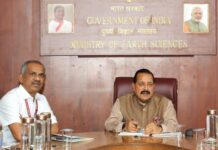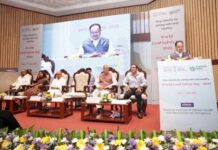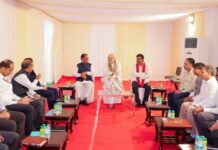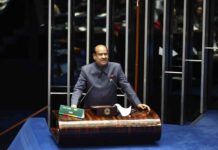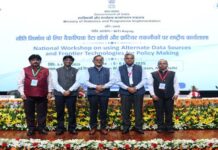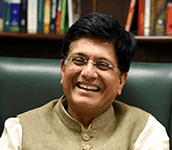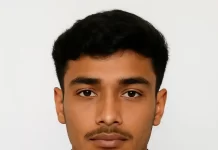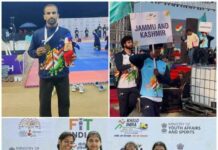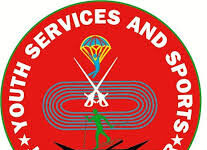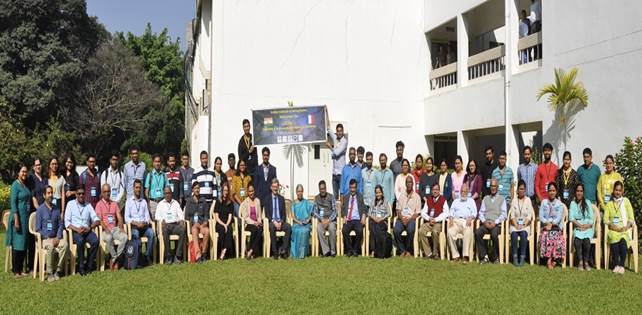17 JAN , Delhi: Indo-French Astronomy science vision for the next decade and multiwavelength synergy science in mega-projects was discussed at the Indo-French focus meeting on ‘Square Kilometre Array Observatory (SKAO)/ Maunakea Spectroscopic Explorer (MSE) and multiwavelength synergies’ recently with a goal to establish a comprehensive long-term partnership in the field of astronomy.
DST secretary Dr. S. Chandrasekhar, the chief guest of the conference, highlighted the importance of an astronomy science vision for both countries to progress in the discipline at the meeting hosted by the Indian Institute of Astrophysics (IIA), an autonomous institute of the Department of Science and Technology (DST) and added that CEFIPRA has been a model organisation in supporting bilateral programs in the advanced areas of science and technology within France and India.
The meeting was organised from 9-13 January in the IIA campus in Bengaluru through the Indo-French Centre for the Promotion of Advanced Research (IFCPAR/CEFIPRA), an organization supported by the Department of Science & Technology (DST), Government of India and the Ministry for Europe & Foreign Affairs, Centre National de la Recherche Scientifique (CNRS), Government of France to discuss collaborative projects in astronomy like the Square Kilometre Array Observatory (SKAO), an upcoming international radio observatory to be located in South Africa and Australia in which both India and France are key partners. It also discussed the collaborative Maunakea Spectroscopic Explorer, which will be operational in the USA.
While speaking at the meeting, Dr. François-Xavier Mortreuil, Attaché for Sciences & Higher Education, the French embassy in Bangalore, India, said that higher education and research are internally connected and during his recent visit to Delhi President Emmanuel Macron, emphasized that it was one of the top priorities of the French government to come ahead and develop a bilateral program of exchange at the R&D and University level within India and the embassy looks forward to supporting many more bilateral projects in the coming years.
Dr. Annapurni Subramaniam, Director, IIA, and Shri Sanjeev K. Varshney, Adviser & Head, International Cooperation, DST, agreed that the meeting was very timely to bring the network of observers, theoreticians, and instrumentation scientists together to address the forefront science goals for the next decade, design multiwavelength synergy projects, and strengthen collaboration, where both the countries, and their European partners are deeply involved at the fundamental technological and scientific levels. Dr. Nitin Seth, the CEFIPRA Director, spoke about the new progressive initiatives of CEFIPRA in 2023, such as the Indo-French Postdoctoral fellowship program for Women in Science.
“We want to be long-term reliable partners in all of the astronomy projects where our scientific, technical, and infrastructure expertise are involved while maintaining the gender balance in higher academics and are doing our bit to ensure that larger objectives laid by both the governments are achieved,” said Dr. Mamta Pommier from the University of Montpellier, France, and the French PI of the meeting.
Professor C. Muthumariappan of IIA, the Indian PI of the meeting, added that the exchange of students and researchers between India and France enhances scientific and cultural exchange to achieve sustainable and intergenerational benefits in areas such as enterprise, training, and education.
Several projects were discussed to map areas of collaboration and the layout of the Indo-French Astronomy vision plan for the next decade. The conference had many discussions on the shared projects, as well as on key scientific questions that astronomers in India and France can collaborate on. Hands-on training sessions were organised on data analysis for the student community as well. In addition, there was a special focus on promoting gender balance, diversity, and inclusion in astronomy, as well as projects for public outreach and student involvement. Indian projects that are planned for the future, like Aditya-L1 solar space mission, the Indian Spectroscopic Space Telescope, National Large Solar Telescope, National Large Optical Telescope, etc., were also discussed. The meeting attracted around 100 scientists, engineers, and students from both countries.
India and France are partners in many upcoming international telescope mega-projects, and many institutions in the two countries are leading various work packages and precursor projects. The meeting was also supported by the French Embassy in Delhi and Bangalore, the International Astronomical Union (IAU) Women in Astronomy Working Group (WG), and the SKA communication office within India and France.






